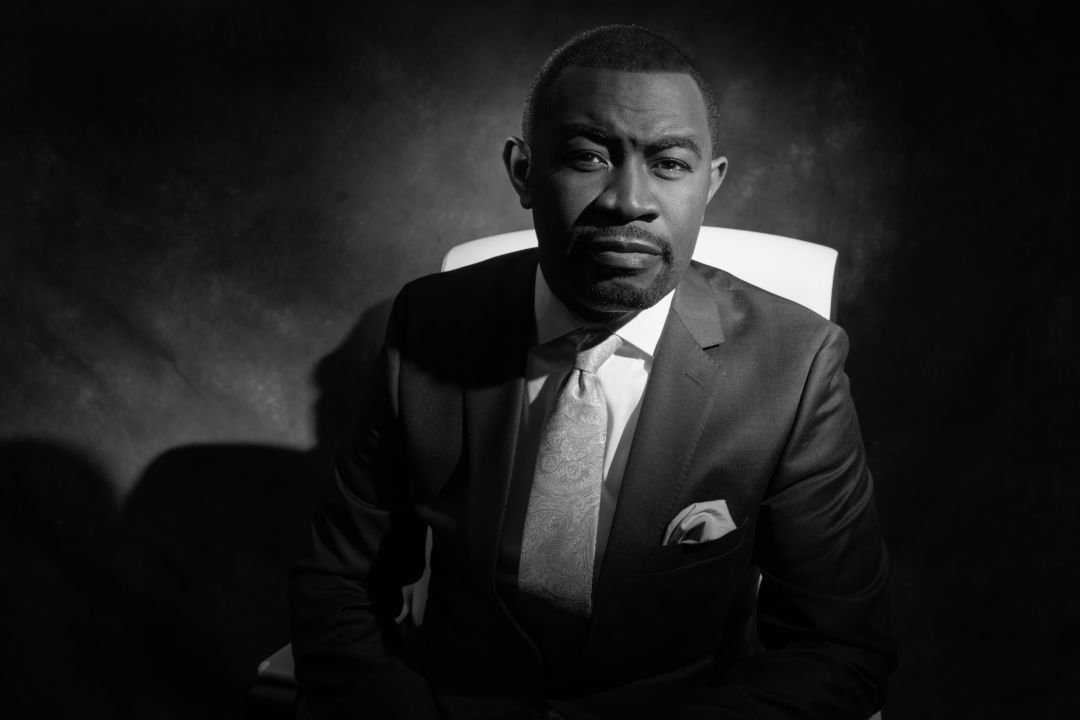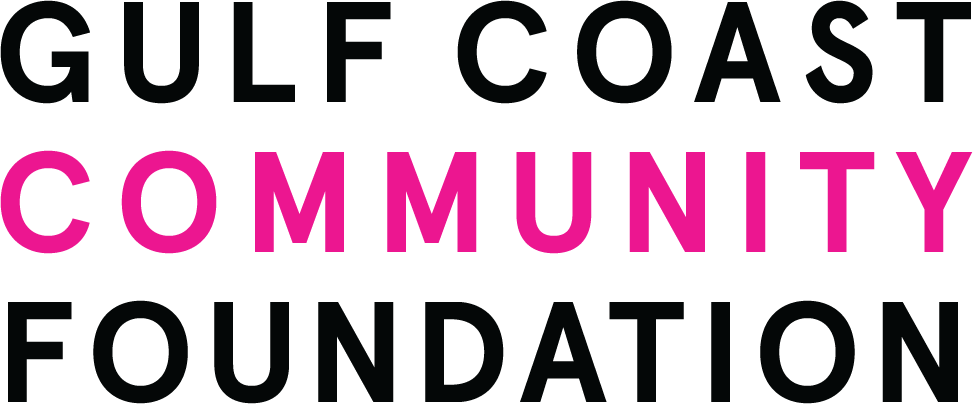Étienne Porter on Music, Black Lives Matter and His Humanitarian Efforts in Mozambique
This article is part of the series In Their Own Words, proudly presented by Gulf Coast Community Foundation.

Étienne "EJ" Porter
Image: Michael Kinsey
Étienne “EJ” Porter is a humanitarian, music producer, musician and owner of the first Black-owned recording studio in Sarasota called Drummerboy Entertainment. Born and raised here, he began singing and playing drums at just two years old. By the time he turned 13, Porter was a professional percussionist, traveling internationally to destinations including Africa, England, France and Italy.
In high school, Porter was introduced to the technical side of music, like sequencing and publishing, from his music teacher and business mentor, Dr. Mariea Watkins. Then, while attending Florida International University in Miami, where he studied jazz and percussion, Porter began to work and tour with notable artists like Marc Anthony, Joe Perry of Aerosmith, P. Diddy, Mary J. Blige, George Clinton, Lil' Wayne and 50 Cent. Closer to home, Porter was instrumental in launching the career of Sarasota native Christopher Eisenberg, who sky-rocketed to national fame on America’s Got Talent.
This year, Drummerboy Entertainment celebrated 12 years as a full-service music production and entertainment company. The company has produced more than 15 albums, plus songs that have charted on Billboard. Recently, Porter, now 42, also launched a music program in the rural community of Machangulo, Mozambique. With the help of friends and donors, he outfitted a local school with musical instruments and recording equipment to encourage the next generation of musicians in Africa.
What was it like growing up in Sarasota?
“Growing up in Sarasota was good for me. My first childhood home was on 29th Street in Newtown. My brother and I would ride our Big Wheels with our mom to Moore’s Grocery Store. I didn’t have a care in the world. I knew I was Black, but my parents raised us to know that it’s who we are, but not a disadvantage. There were no racial discussions in our home. I believe that was intentional, so we didn’t form judgements early in life and could build relationships, accepting others as they are.
“Later, we moved to 47th Street in Indian Beach-Sapphire Shores, where we didn’t see another Black family in the neighborhood. But our Canadian-born neighbor welcomed us with open arms. We didn’t have a lot of tools—my dad wasn’t handy—so our neighbor would let me use his tools to fix my bike.
“It was when I went to college in Miami when I saw that the world was more diverse than Sarasota. People of all colors and races got along, even in places like Little Havana, Doral and Kendall. “
Tell us more about your experience living here.
“Growing up here, it felt like whites did their thing and Blacks did theirs—not in a negative way. We had our Easter events and Martin Luther King Jr. Day parades, and if white people were there, it was because they were involved with our community.
“Over time, I felt like I became the ‘safe’ Black guy to know or hang out with. I would attend social events, which I enjoyed, but at some point, I wondered if I was there because I’m cool company or because my presence meant [the organization] was ‘in touch’ by having a Black guy at the event. I don’t want to be the stripe on your sleeve. There are other interesting Black people out here. And the Black community and our events could use support other than at the MLK and Juneteenth parades. That would feel authentic and genuine.
“My biggest challenge with Sarasota is that relationship connections with minorities tend to be reactive rather than proactive. Real inclusivity is not scrambling to find it, but rather cultivating friendships with people of color in a meaningful way. It’s not leading with the need for diversity. It's leading by broadening connections with people who don’t look like you—that’s where you’ll find the interesting conversations. There’s so much to learn. Once you get to know people and their interests, that’s how you get diversity in the room of the various organizations in town.
“I understand its uncomfortable to be in a room of people that don’t look like you. I’ve been one of three Blacks at a large event. I don’t know a lot of whites who will put themselves in that position, but sometimes you have to be uncomfortable to connect, which leads to stronger bonds.”
Tell us about the person who influenced you most at an early age?
“I’m a mother’s boy—I wanted to always be with my mother. She passed early, at the age of 53, and was a big influence on me. I watched her help others behind closed doors; often, the people she helped didn’t know it was her. She had the ability to corral people to support someone or something that the community needed—from politicians to schools to the church—by getting on the phone and sowing seeds of good intentions. She never asked for accolades.
“My mother also founded Pride, an organization that helped prostitutes get off the street and turn their lives around. I clearly remember times when we would be driving home and she would pull over, roll down the window and call out to a woman on the street by name. She’d tell the woman to get in the car and she’d either take her home or get her a hotel room. My mother would even help place the women's children outside of the foster care systems or get them formally adopted. This wasn’t an easy thing to do, especially when she’d have to explain that a baby may be born with addictions because the mother had substance abuse issue.
“Witnessing my mother’s actions gave me a broad understanding of using influence in a positive way. She used her power for good. I think we all should do that, because if you can, that’s how change begins.”
At 13 years old, you traveled to Africa. What was that like?
“I was welcomed and called ‘my brother.’ The people were so happy that I had come home to the motherland. They lost family with the trauma of slavery and saw the similar lineage of our ethnicity. It felt, to them, like I was there to check in on them. Looking back on that experience, I now realize that people love you because of the similarities that they see in you.
“Even though we didn’t know each other, they are my kinfolk, and they are beautiful.”
Tell us about your humanitarian project in Mozambique.
“In 2019, I traveled with my friend Tomeika Hunter-Koski to the peninsula of Machangulo, Mozambique, where she supports a school. Mozambique is one of the poorest countries that I’ve been to—there are no paved roads, and the people live in shacks but call them homes; I don’t want to be disrespectful of that."
“While there, the school put on a production for us with some of the students playing instruments they made, such as a five-gallon plastic container turned into a drum, with ‘drumsticks’ that were formed out of a tree branch that had the leaves removed. I always travel with drumsticks and a drum pad in my backpack; it’s a way of relaxing for me. I instantly took out the sticks and handed them over to the kids. They had no idea what musical instruments looked like. Right there, I decided to establish a performing arts and recording studio for them within the schoolhouse.
“I teamed up with my friend Josephine Eisenberg, who was also along for the trip. The headmaster and a teacher led me to an empty room that we could convert into a studio, and we did. With the help of friends and a $100 donation ask, we raised $12,000. The next year, we purchased instruments in the Maputo, the capital of Machangulo, and drove four hours through an elephant reserve, on a bumpy dirt road packed into a seven-passenger SUV with four adults and a drum set, piano, two guitars, microphone, and a recording interface, plus a rechargeable solar-battery-generated backpack for electricity. We are still raising money for the school and we want to find more schools to give the gift of music to, to sow it to the next generation. Every kid, no matter where they live, should have the same musical opportunities and not suffer because of lack of resources.”
What does the phrase “Black Lives Matter” mean to you?
“Black Lives Matter is exactly that. To quote the comedian Michael Che, but in a non-joking way, ‘We’re not asking for much, we just want to matter.’
“Our plea doesn’t mean that Black lives need to be at the top of the pedestal. It’s simply a plea for the same concern everyone has —have respect and regard for my life just as you have for your own. And I mean this for everyone, whether they are Asian, Jewish or German. If we start there, I don’t think anything about the phrase would be misunderstood.
“Where the misunderstanding happens is the incorrect belief that the Black community wants something above and beyond of what’s been given. I just want the same opportunities. Take the Voting Rights Act—how is it that every 25 years, it has to be reauthorized? White Americans don’t have to be concerned about their voting rights being approved over and over again. When the country becomes progressive and extends the same rights and privileges to everybody, then we can abolish Black Lives Matter. Until then, this will always be our cry and what we are living by.”
What would you like your white friends or acquaintances to be doing right now?
“Join the cause and listen to your Black friends, and also be vigilant and proactive for our community. Ask your Black friend to tell you what’s really going on in the system and what’s still being wrongly perpetuated so it doesn’t continue. Get a peek inside of how we feel and learn what we know—that’s where change happens. Then, white friends can influence their other white friends to have a conversation of deeper understanding.
“Know that Black people are not looking for revenge—we want to live and have the same enjoyments and rights, and that should not be withheld based on a factor that we cannot control—being Black. America must see past the external and judge us on our character. I live in a way that others should feel who I am by my heart and my message not the color of my skin.
“The truth is that every person has a common goal, we are all trying to get the same thing in life: happy.”
Listening to Black Voices is a series created by Heather Dunhill.




